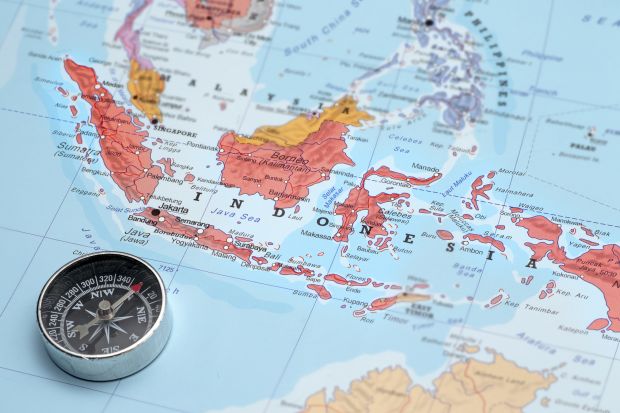Branch campuses in Indonesia could be a step closer to reality for Australian universities and colleges, after the two countries formalised a new trade accord.
The Indonesia-Australia Comprehensive Economic Partnership Agreement – which had been delayed for several months by a diplomatic wrangle over the location of Australia’s Israeli embassy – was finally signed on 4 March.
While the agreement still requires approval from both countries’ parliaments, it follows the Indonesian government’s ratification of a seven-year-old law allowing foreign universities to set up on Indonesian soil.
The trade agreement allows Australian enterprises to own up to 67 per cent of technical and vocational training colleges in Indonesia – up from current rules limiting them to minority ownership – and automatically locks in “future liberalisation” for Australian universities setting up in the archipelago, according to Australia’s foreign affairs department.
Indonesians will benefit from relaxed visa rules around work trips, holidays and six-month “work training opportunities”, with potential spin-offs for Australian universities and colleges if visitors opt to study during their Australian sojourns. The two countries have also agreed to a reciprocal skills exchange allowing professionals from both nations to gain six months’ experience in each other’s markets.
It could be year’s end before the agreement is officially endorsed, with both countries facing elections over the next two months. Nevertheless, Australian education minister Dan Tehan said that his government looked forward to “collaborating with Indonesia and taking advantage of the opportunities that will arise through the Ministerial Decree on Foreign Universities”.
Vocational education minister Michaelia Cash said that Australian providers would have opportunities to “deliver more skills training in Indonesia, forging closer links with our largest neighbour”.
The Group of Eight universities said that the agreement had “partly” delivered on its calls for provisions allowing universities of each country to establish branch campuses in the other. Go8 chief executive Vicki Thomson said that the agreement offered a “solid foundation” for greater two-way mobility of students and researchers.
“Once in place, this will pave the way for talented Indonesian students to access Australian education at a lower cost, support the Indonesian government in meeting the education needs of its growing middle class, and provide further opportunities for Australia’s international education sector.”
Ms Thomson said that the Go8 would continue to lobby for streamlined visa processes. It also wants the accreditation framework revised to encompass online study programmes.
She said that deeper engagement with Association of Southeast Asian Nations members was a “key priority” for the Go8 “as the world’s focus shifts to our region. We see this agreement as a strong signal that Australia is looking to deepen our engagement with Indonesia.”
Register to continue
Why register?
- Registration is free and only takes a moment
- Once registered, you can read 3 articles a month
- Sign up for our newsletter
Subscribe
Or subscribe for unlimited access to:
- Unlimited access to news, views, insights & reviews
- Digital editions
- Digital access to THE’s university and college rankings analysis
Already registered or a current subscriber? Login








